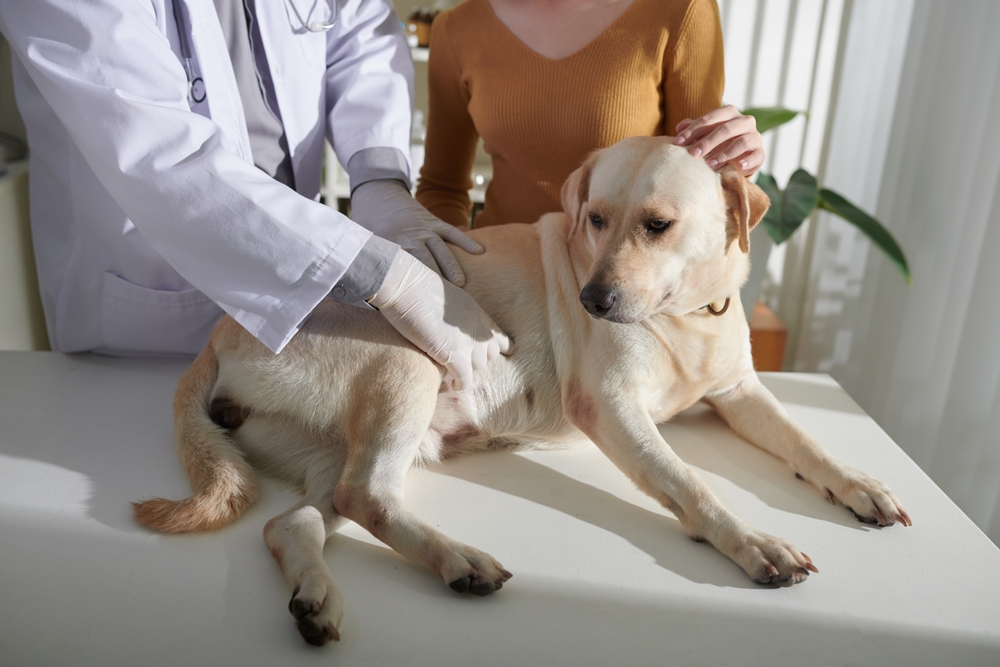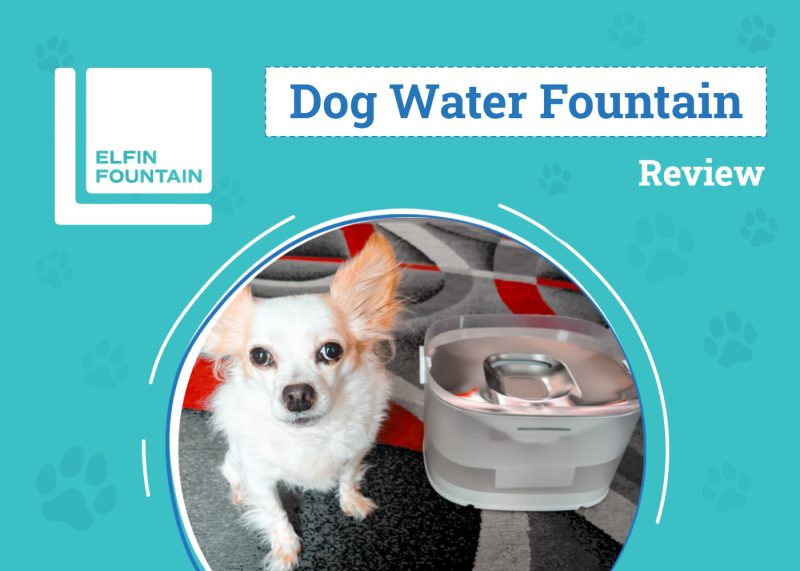In this article
If you’re trying to fall pregnant, are breastfeeding, or are an expectant mother, you know that your prenatal vitamin is packed with all the vitamins and minerals you need for yourself and your developing baby. Unfortunately, that very tablet that is essential for mommies-to-be is very dangerous for your dog’s health. If your dog got to them somehow, the best thing you can do is call your vet immediately. The second thing to do is to remain calm.
The severity of the situation will depend on your dog’s age, weight, health condition, and how many vitamins they consumed. However, prenatal vitamins are one of the most dangerous vitamins for your dog to consume, so don’t wait out the situation in hopes that your dog will be fine—call your vet right away, and they’ll guide you through what to do next.

Treatment Of Vitamin Poisoning in Dogs
If your dog only ate one prenatal vitamin, treatment should be relatively quick and straightforward. However, if they’ve consumed more than one, they will likely need to be admitted to the hospital for overnight care and observation.
Depending on when your dog ate the vitamins, the vet may induce vomiting. This is done in emergencies in an attempt to remove the prenatal vitamins from a dog’s body before they are absorbed. They may also have to receive activated charcoal to help prevent toxins from being absorbed into your dog’s body.
In some cases intravenous therapy will also be required, this provides them with hydration and medication to prevent organ failure and control their blood pressure. Only once your dog is stabilized and your vet has given you the green light will you be able to take your dog home and continue their care there.

Signs That Your Dog Ate a Prenatal Vitamin
The severity of your dog’s reaction will depend on how many prenatal vitamins your dog ate. Of course, the more tablets they consume, the higher the concentration levels of the ingredients will be in their bodies.
Their health condition, age, and weight will also affect the severity that the prenatal vitamins will have on their health.
- Vomiting
- Diarrhea
- Loss of appetite
- Excessive thirst
- Increased urination
- Blood in stools
- Weakness
- Drooling
- Abdominal pain and/or swelling
- Rapid heart rate
- Muscle tremors
- Loss of bodily control
- Low blood pressure
- Seizures
Although these signs can come on quickly, it’s important to phone your vet as soon as you discover that your dog has eaten one or more prenatal vitamins instead of waiting to see if any of these occur. It is essential to act quickly so that your dog can receive treatment before their condition worsens and becomes harder to manage.
If you need to speak with a vet but can't get to one, head over to PangoVet. It's our online service where you can talk to a vet online and get the advice you need for your pet — all at an affordable price!
What Makes a Prenatal Vitamin Dangerous for Dogs?
Prenatal vitamins contain high amounts of iron, vitamin D, and calcium, along with many other nutrients. Unfortunately, it’s the high concentrations of these ingredients that are so dangerous for dogs.
Although iron is necessary for the production of red blood cells that provide oxygen to the baby during pregnancy, if a dog consumes too much iron, it can lead to severe health issues and, in some situations, death. Some of the first signs of iron toxicity are vomiting, which can lead to seizures, liver failure, and even cardiac arrest.
Calcium is another mineral found in prenatal vitamins that is essential in pregnancy because it maintains the mother’s bone density and contributes to the baby’s bone growth. However, a high concentration of calcium in a dog’s diet can cause vomiting, weakness, and kidney issues.
Vitamin D also has a role to play in the development of a baby, but if a dog consumes an excessive amount of it, it can cause kidney failure. Don’t be alarmed if you see iron, calcium, and vitamin D listed as ingredients in your dog’s food. They’re important vitamins and minerals that your dog needs in their diet when consumed in small amounts.
Another ingredient commonly found in prenatal vitamins that is poisonous to dogs is xylitol, which is a sugar substitute, and unlike the vitamins and minerals listed above, should never be listed as an ingredient in your dog’s food. Xylitol drops your dog’s blood sugar levels, causing weakness and seizures. If a dog consumes foods or tablets containing this ingredient, it can be life-threatening.

Can I Give My Pregnant Dog My Prenatal Vitamins?
No, you should never give your pregnant dog your prenatal vitamins. In the same way that a prenatal vitamin manufactured for humans is dangerous to dogs, it is also dangerous to pregnant dogs.
If your pregnant or nursing dog is on an appropriate, complete, and balanced high-quality dog food, then no extra vitamin supplements are needed. The only time your pregnant dog will need a supplement is if your vet has specifically prescribed one.
Over-supplementation, particularly of calcium, can cause serious issues. Too much calcium can suppress your dog’s parathyroid gland, this is the gland that is important for calcium balance in the body. This can lead to a condition called eclampsia. Eclampsia is an emergency associated with a life-threatening drop in blood calcium levels which usually occurs in nursing dogs but can be caused by calcium supplementation in pregnancy.

Conclusion
Accidents happen, and dogs often get into foods, substances, and medications that they’re not supposed to. Prenatal vitamins, although excellent for pregnant women, are very dangerous for dogs, and if consumed, your dog needs to be seen by their vet immediately. The outcome of this unfortunate situation will depend on your dog’s health, age, and weight, as well as how many prenatal vitamins they consumed.
A dog’s body and nutritional needs are very different from a human, and any medication and supplements should not be shared between the two, even if both you and your dog are expectant mothers.
See also:
- My Dog Ate an Ink Pen! Here’s What to Do (Vet Answer)
- My Dog Ate a Rose, What Should I Do? Vet-Reviewed Facts, Complications & FAQ




















